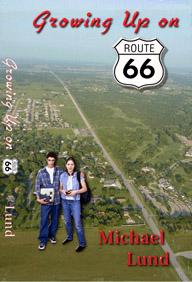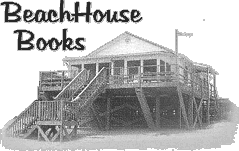

![]() ISBN: 1-888725-31-1 Growing
Up on Route 66--a novel by Michael Lund (BeachHouse Books) $14.95
ISBN: 1-888725-31-1 Growing
Up on Route 66--a novel by Michael Lund (BeachHouse Books) $14.95
![]() ISBN: 1-888725-45-1 MacroPrintBooks Edition Growing
Up on Route 66--a novel by Michael Lund (BeachHouse Books) $24.95
ISBN: 1-888725-45-1 MacroPrintBooks Edition Growing
Up on Route 66--a novel by Michael Lund (BeachHouse Books) $24.95

 BeachHouse
Books is a publisher of original select literary works and contemporary
thought. Some of our books don't fit mass distribution channels, but we
produce them because they are thought-provoking, provocative in general,
or sometimes just for the fun of it. Some of our books are "controversial"
perhaps "irreverent" but all of them are intended to improve relationships
and the state of the human spirit. BeachHouse
Books is a publisher of original select literary works and contemporary
thought. Some of our books don't fit mass distribution channels, but we
produce them because they are thought-provoking, provocative in general,
or sometimes just for the fun of it. Some of our books are "controversial"
perhaps "irreverent" but all of them are intended to improve relationships
and the state of the human spirit.
Everyone has a beachhouse, if only in the mind, where you step out of the everyday, settle down in the warming sun, and think thoughts that enable you to deal with life and envision your purpose in a different way. BeachHouse Books are the kind of books that fit the beachhouse part of your mind, for fun reading, and perhaps that's where they were written. We are interested in suggestions for useful projects and in acquiring books that fit our mission. |
Other Related Sites:
last modified August 9, 2001
![]() comments
or questions to publisher@beachhousebooks.com
comments
or questions to publisher@beachhousebooks.com
BeachHouse Books™
an imprint of Science
& Humanities Press
PO Box 7151 Chesterfield MO 63006-7151 (636) 394-4950
|
PO Box 7151 Chesterfield MO 63006-7151 (636) 394-4950 |